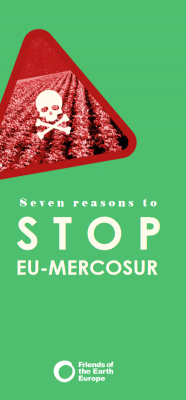
After more than 20 years of negotiations, the European Union and Mercosur (Argentina, Brazil, Paraguay, Uruguay) reached a free trade agreement in 2019. If ratified, it would become one of the largest trade deals in the world.
This corporate-friendly deal would boost the trade in harmful products between the two regions by removing most of the tariffs on goods. It would have dire consequences on the environment and human rights.
It harms the environment
The destruction of the Amazon has likely reached a crucial tipping point, that would replace it with a dry savannah, with profound consequences for biodiversity, carbon sequestration, precipitation, and the livelihoods of communities.
Over the last four years, deforestation in the Brazilian Amazon grew by 59.5%. The EU-Mercosur deal will increase demand for the main drivers of that destruction. It will for instance boost the imports of beef, soy and ethanol made from sugar cane, to Europe. And as the demand for cattle farming and soy production land grows, so will the forest fires to “clear” the ground. If the deal is ratified, according to a governmental study, deforestation in Mercosur would increase by at least 5% per year over the next six years.
Brazil and Argentina are also important suppliers of raw minerals and energy resources (such as lithium, iron, silver or copper). The deal will foster mining and the extraction of these natural resources in Mercosur region, another driver of deforestation and pollution.
To salvage the deal, the European Commission has proposed an additional environmental protocol but it only offers cosmetic and unenforceable adjustments.
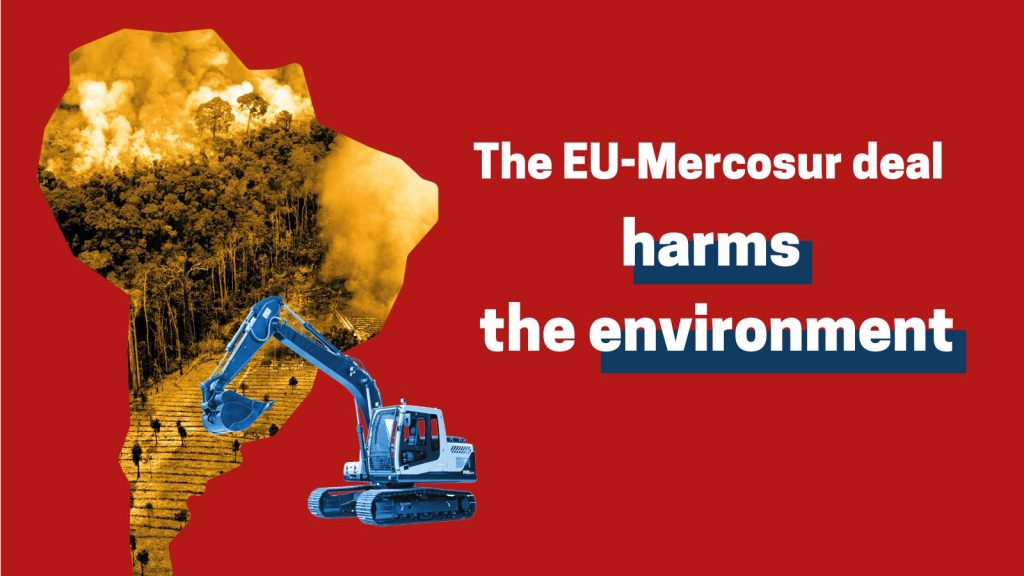
It kills the climate
The acceleration of deforestation in the Amazon threatens the capacity of the rainforest to store carbon. It will be impossible to respect the Paris Agreement targets if the planet’s greatest carbon sink is destroyed.
In Brazil, land use changes due to agribusiness represent almost half the country’s emissions (49%). Methane released by ruminant livestock, livestock waste and irrigated rice cultivation also count for 25% of Brazil’s emissions. The EU-Mercosur deal will boost the greenhouse gas emissions linked to these activities.
The deal will also increase emissions related to international transport. Lastly, it will favour European exports of motor cars, a total climate nonsense.
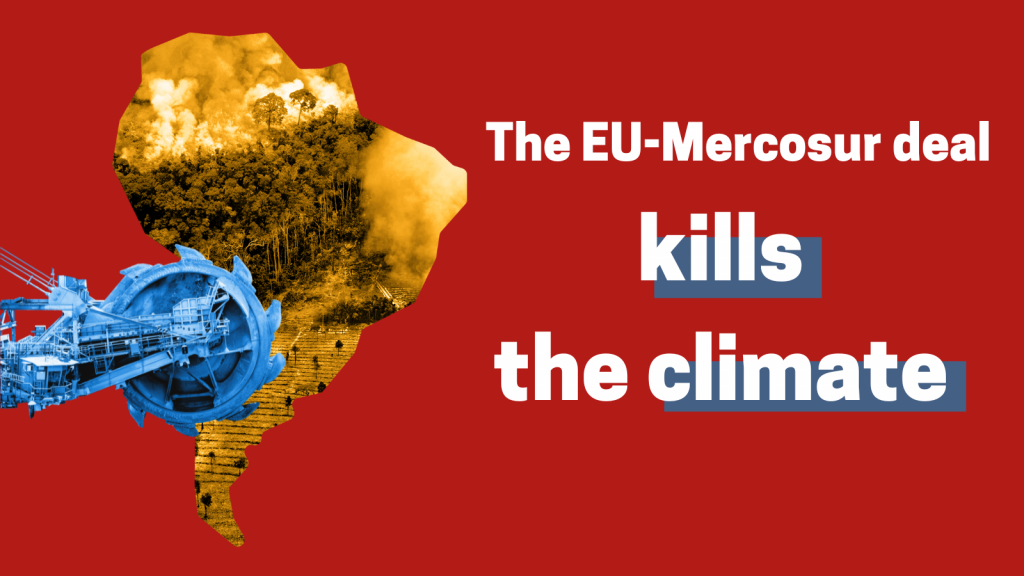
It poisons people and nature
If ratified, the EU-Mercosur deal will boost exports from Europe to Mercosur of toxic pesticides that threaten people’s health and biodiversity. Brazil is the biggest user of pesticides in the world and has multiplied sixfold its use over the last twenty years. One person dies from pesticide poisoning in Brazil every two days.
In February 2023, the Brazilian Ministry of Agriculture released or renewed 42 agrochemicals, including 24 that are forbidden in the European Union. Fruits and vegetables contaminated by those pesticides are exported back to European supermarkets.
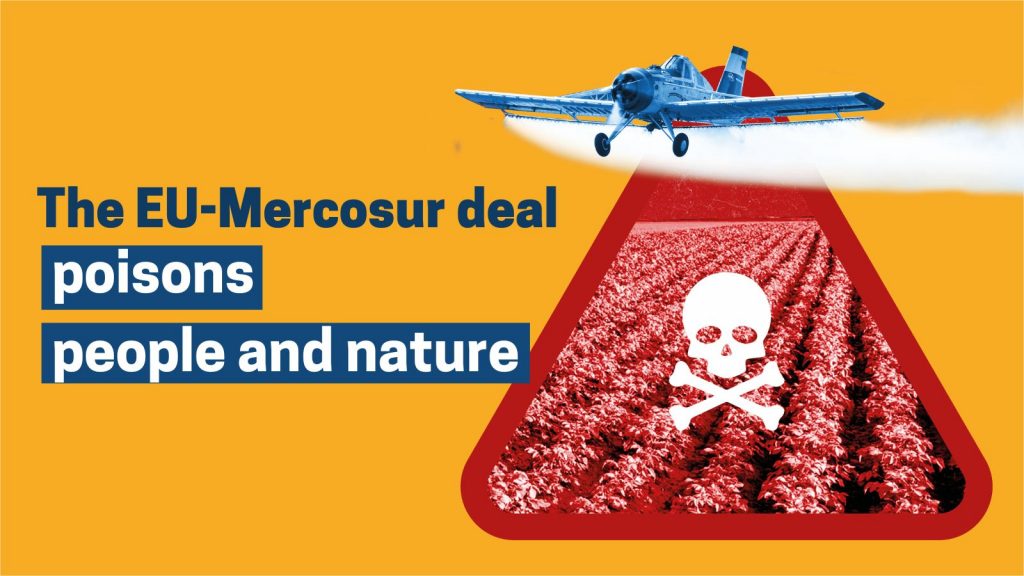
It puts human rights and people’s health at risk
By boosting deforestation, mining, pesticides spraying and climate change, the EU-Mercosur deal directly threatens Indigenous Peoples, rural communities and workers in Mercosur.
Large-scale mining and extensive monoculture lead to the invasion of indigenous territories, land-grabbing and violent attacks. In Brazil, more than 900 000 people were affected by rural conflicts in 2022. The expansion of agribusiness is also directly connected to forced labour. At least 2 468 workers were rescued from forced labour in Brazil in 2022. Lastly, the exposure to highly dangerous pesticides increases the risks of cancer and diseases.
The deal does not include any binding human and labour rights standards. It does not provide measures to sanction human and labour rights violations and lacks binding rules on corporate accountability.
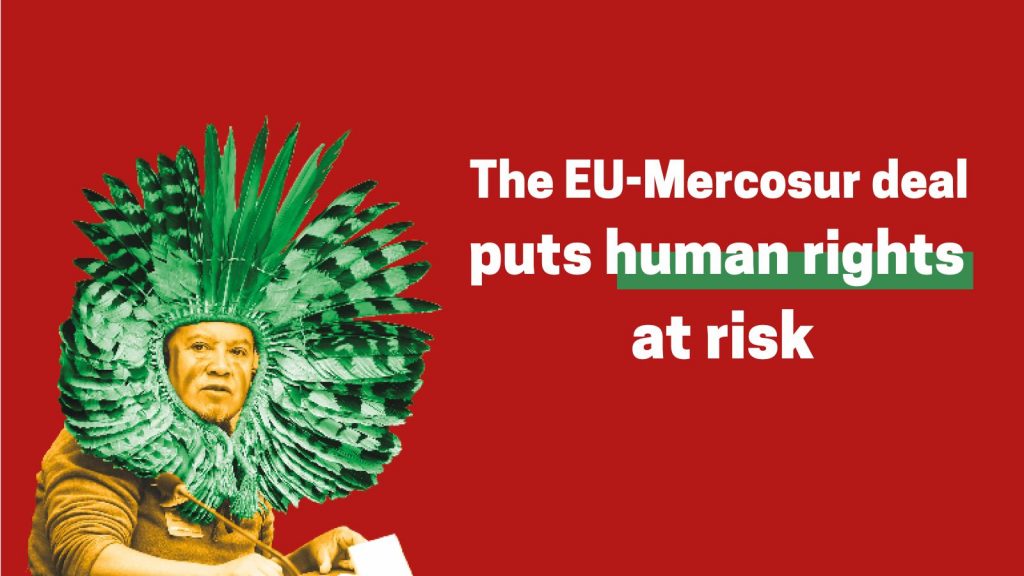
It is undemocratic
The EU-Mercosur deal has been negotiated in full secrecy and opacity, without participation of civil society nor consultation of local communities and trade unions. Some parts of the text have not been divulged nor translated in languages of Mercosur countries.
Citizens across Europe and Mercosur have mobilised against the deal. It has also been rejected by several parliaments (in Austria, the Netherlands, Wallonia and the European Parliament) and met the opposition of some national governments like France and Austria.
Still, the European Commission is trying to bypass these oppositions by splitting the trade part of the deal. It means the adoption of this trade part would not require the consent of all Member States within the Council of the EU nor ratification at national level.
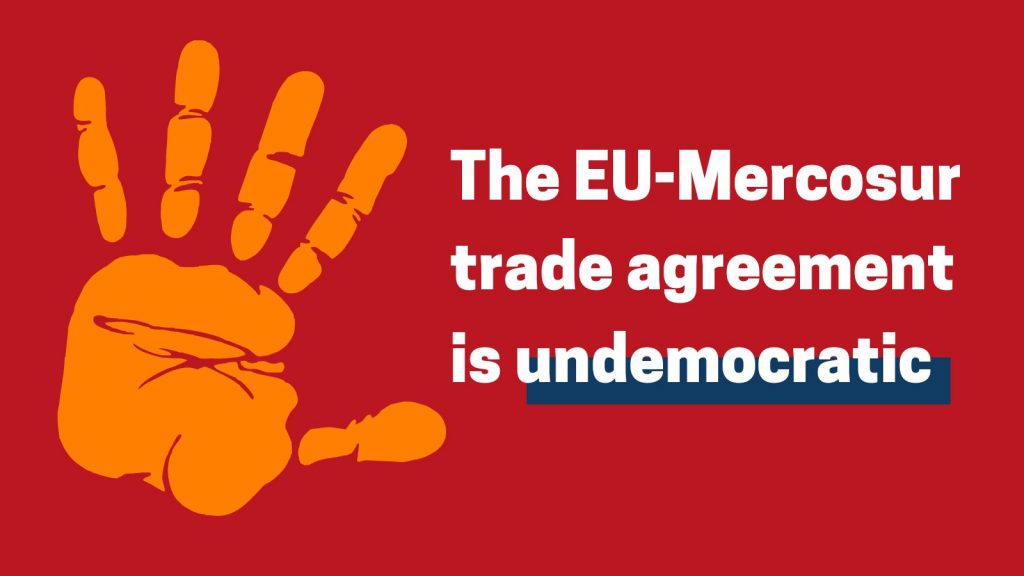
It massively profits big businesses
Free trade agreements increase competitive pressure and corporate concentration. The EU-Mercosur deal will disproportionately benefit agribusiness and the European agrochemical and car industries, at the expense of small and medium enterprises, small-scale and family farmers. This explains why European multinationals such as Bayer and BASF have strongly lobbied both EU and Mercosur countries to adopt the deal.
Studies predict very small or negligible GDP gains for all countries. In Mercosur, it would increase deindustrialization, higher inequalities and more dependence on external demand. In Argentina for example, 186 000 industrial jobs could disappear.
It will also open public procurement programs in Mercosur to European corporations, which would limit the capacity of Mercosur governments to sustain local economic activities and develop public policies in the interest of its own citizens or the environment.
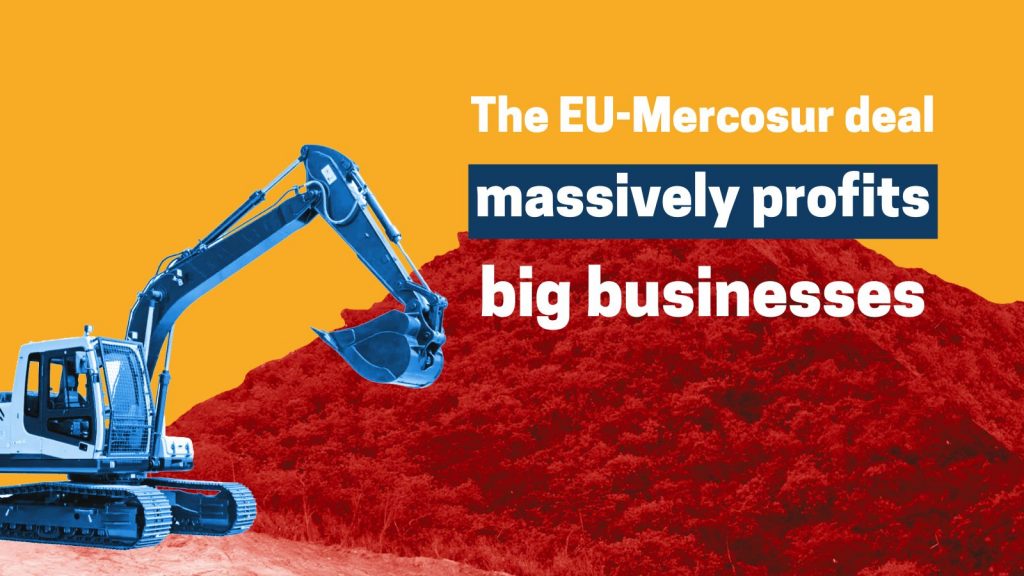
It props up neocolonialism
Since colonisation in the 15th century, Europeans have been extracting raw materials from Latin America, and importing natural resources and monoculture crops to Europe. Still today, the trade relationship between the two regions remains asymmetric.
The majority of EU exports to Mercosur are processed goods (chemicals, cars) whereas Mercosur exports to Europe are mostly agricultural and mineral resources.
The deal would lead to an even greater specialization of Mercosur towards the production of raw materials and commodities instead of the diversification of its economy.
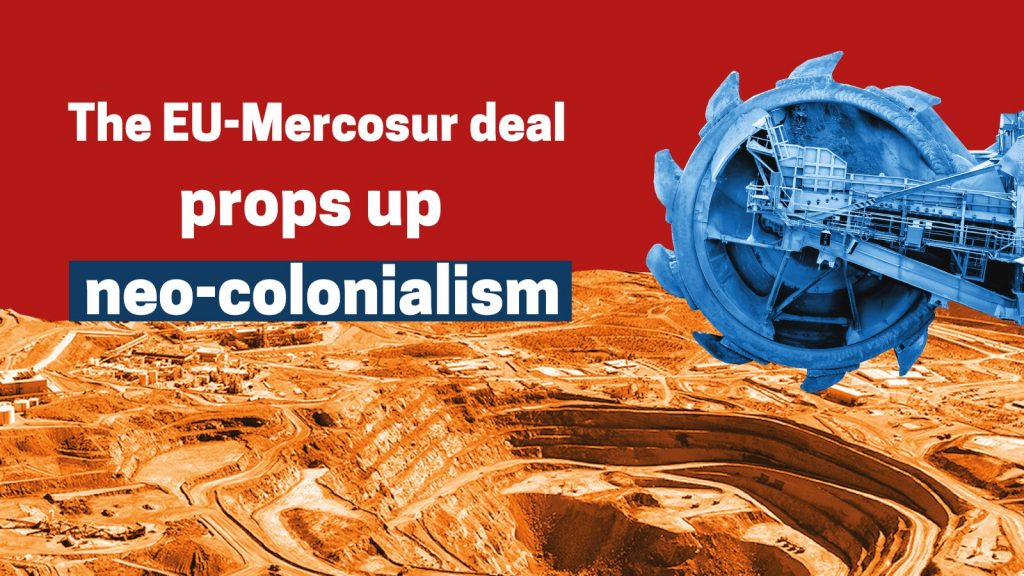
Related Content
We think you’d also like:
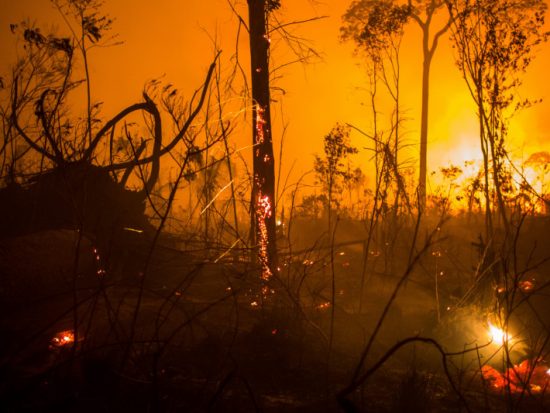
Stop the EU-Mercosur trade deal
The EU is close to finalising a climate-wrecking trade deal with Brazil, Argentina, Paraguay and Uruguay – known collectively as Mercosur. But there’s still time to stop it.







